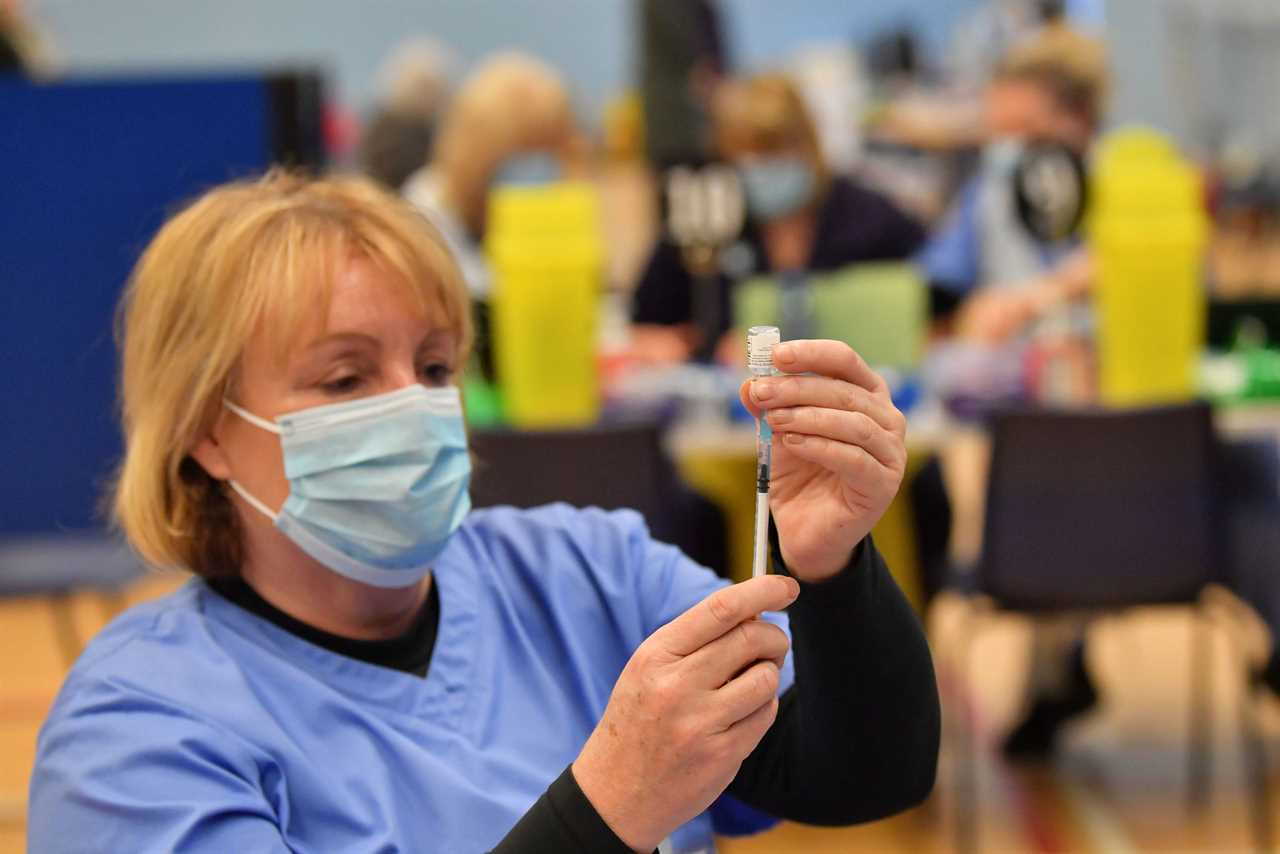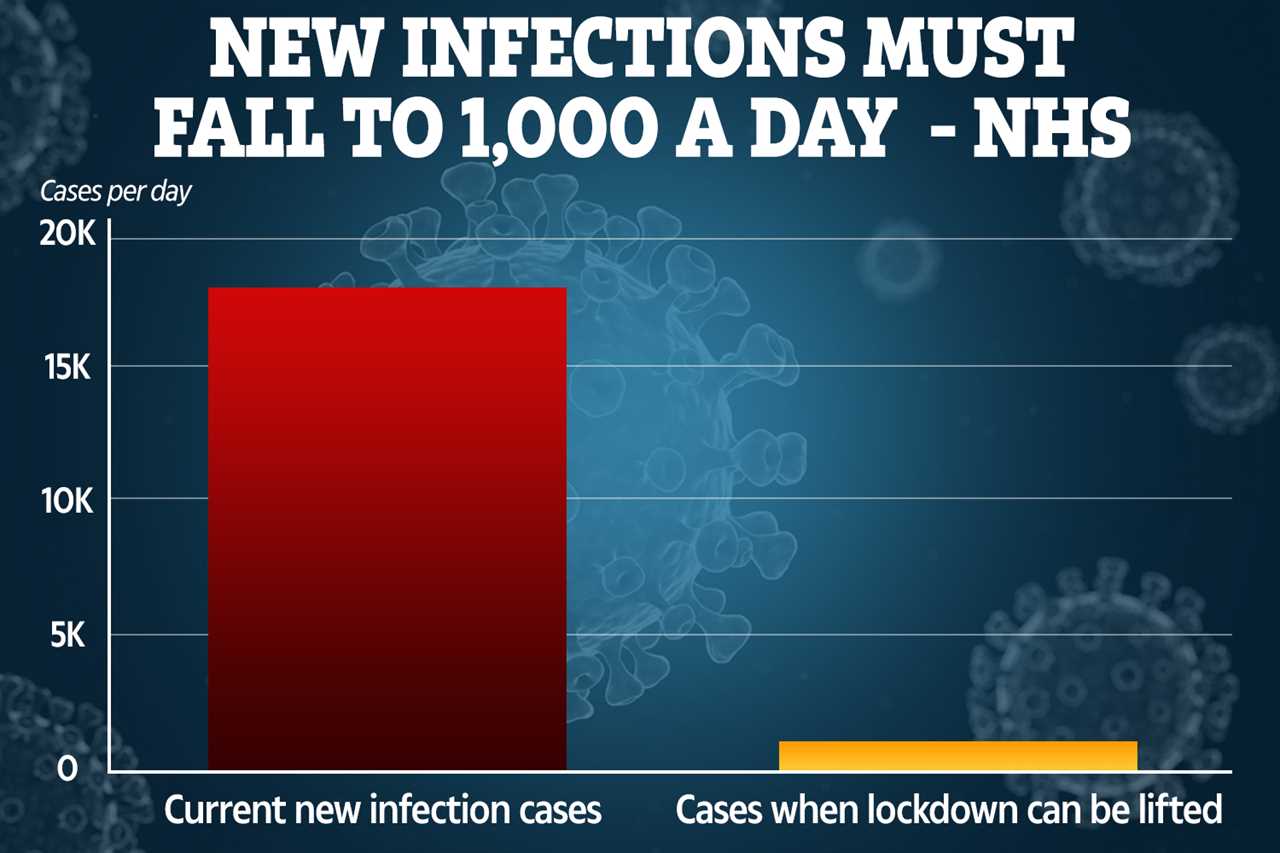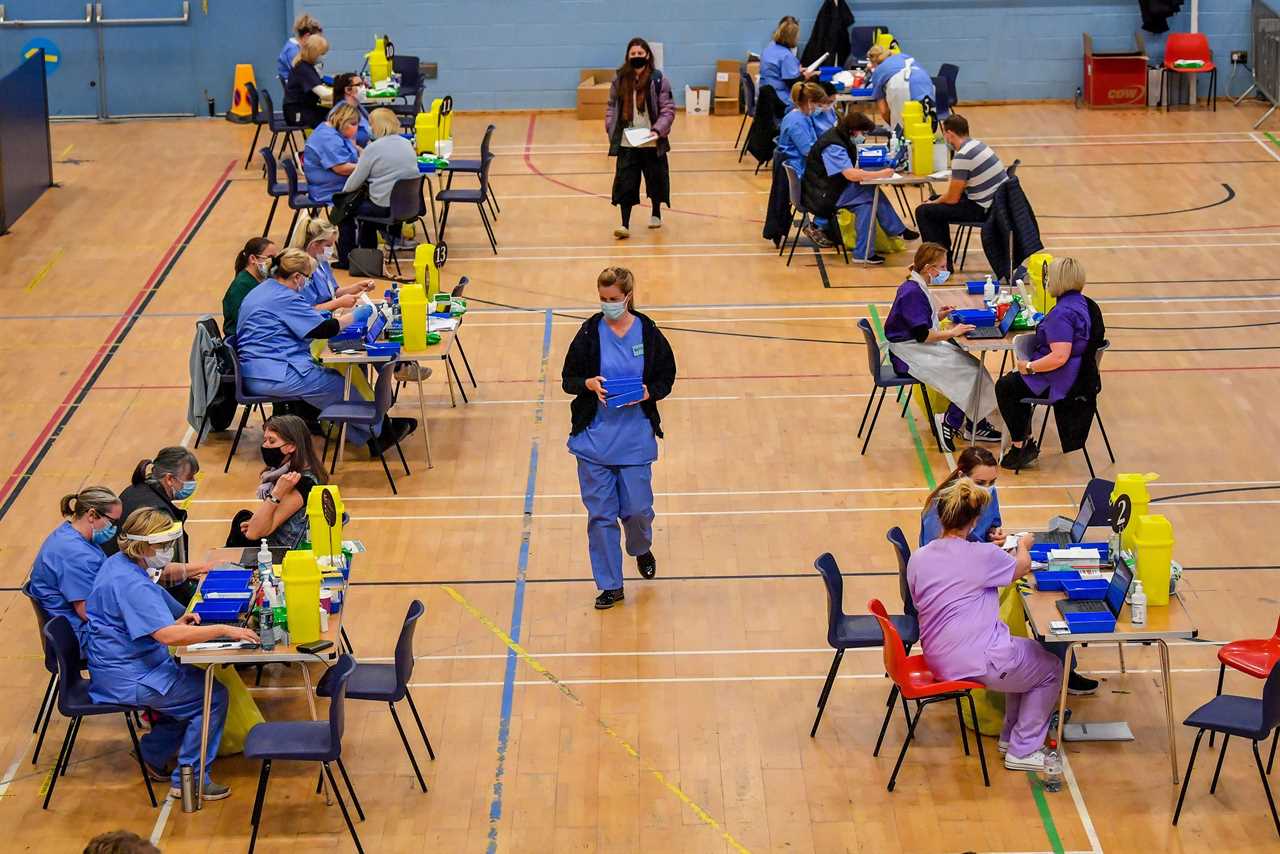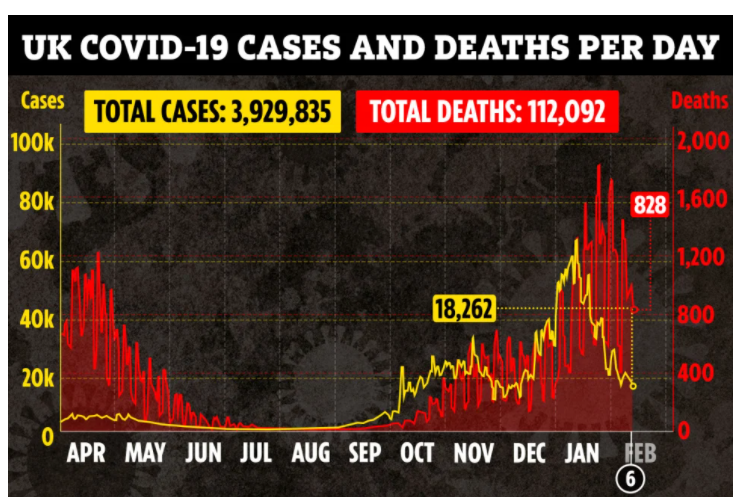COVID infections must fall by another 95 per cent to just 1,000 a day before lockdown is lifted, say NHS bosses.
They insist lifting the no-nonsense pandemic restrictions too soon will lead to another wave of coronavirus cases.

Read our coronavirus live blog for the latest news & updates

Chris Hopson, chief executive of NHS Providers, is now to write to the PM to urge him not to lift lockdown until infection stats drop massively.
The number of new infections stood at 18,262 yesterday bringing the total number of cases across the country to 3,929,835.
Mr Hopson’s plea comes even though 22 per cent of all over-18s in the UK have now been vaccinated – including many of the most vulnerable.
And the country is now on course to smash its target and give all adults both doses by August 14, according to analysis.
Current data also suggests that England’s R rate is now below 1 for the first time since July.
However, a target of 1,000 new cases a day would scupper any hope of an early lift of lockdown.
Mr Hopson told the Sunday Times: “We have crested the peak, but we’re only just beginning the descent.


“We’re still at a dangerously high altitude, where the NHS is still under great pressure, and the thing that we know is that this descent is going to be much slower because people are taking longer to recover.
“It’s going to take months – it’s not going to take days and weeks.”
His warning came after the government’s Sage advisory committee of scientists said lifting the lockdown before May could trigger a fourth wave.
Even with a successful vaccine programme, they believe there could be a further 130,000 deaths between now and June next year.
And although the government is on track to vaccinate the over-70s by February 15 they believe infections could prove severe in the small percentage of recipients in whom the vaccine does not block symptoms.
The intervention by health chiefs and scientists comes as Boris Johnson prepares to set out a road map for recovery in a fortnight’s time.
Officials from No 10, the Cabinet Office and the Treasury met last week for the first time to discuss the long-awaited lockdown exit strategy.
Long-suffering Brits have had to endure three lockdowns already – and senior Cabinet members have insisted the current one must be the last.

Pubs, restaurants, shops and many other businesses are already on the brink of collapse after being shuttered for almost a year.
And families – in particular children stuck at home instead of school – are desperate for a return to normal life.
Vaccines Minister Nadhim Zahawi has said Britain will be able to massively ease restrictions once all over-50s have been offered the jab by late spring.
Alongside the discussions in No 10, the joint committee on vaccination and immunisation (JCVI) has begun drawing up the next phase of its inoculation strategy.
Court staff, delivery drivers and shop workers are among the frontline workers expected to be in the next tranche of people offered the vaccine.
A Whitehall source told the Sunday Times : “The JCVI has begun discussions about who should next be prioritised for the vaccine in order to reduce the number of Covid hospitalisations.
“It makes sense to target those who come into contact most often with members of the public in order to reduce the transmission rate.”
Taxi drivers, refuse collectors and police officers are also among those who could be given accelerated access to the vaccine, the source reportedly added.






